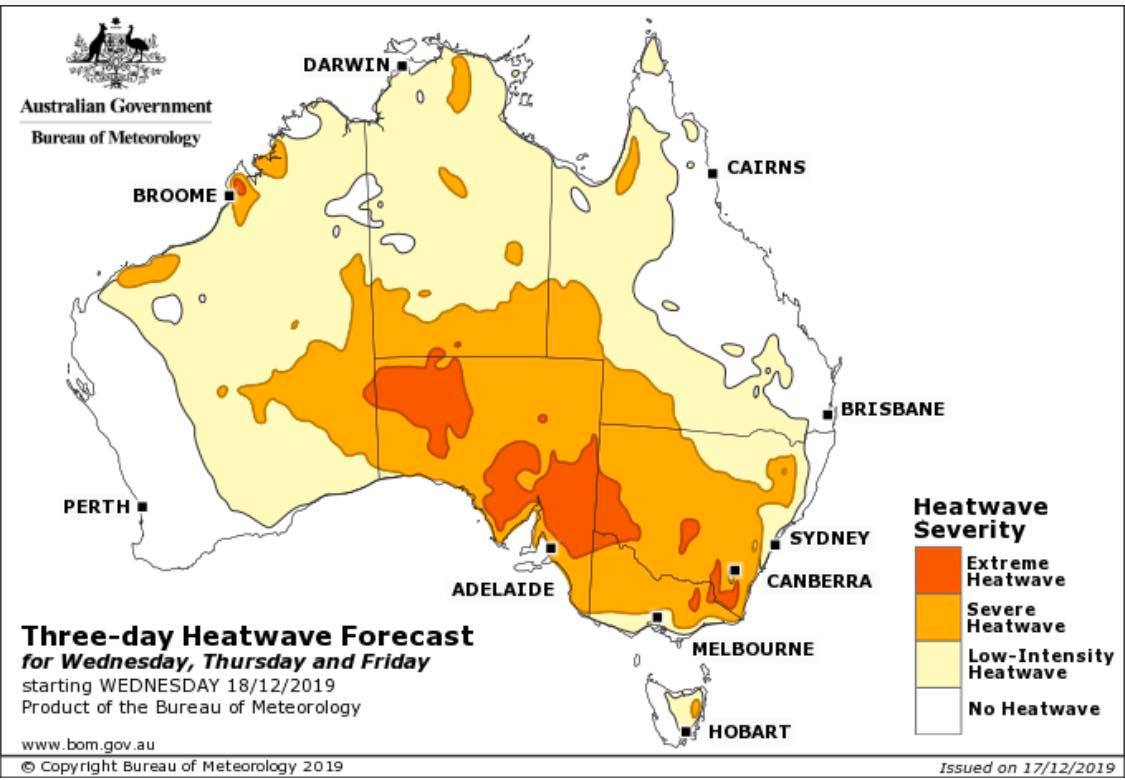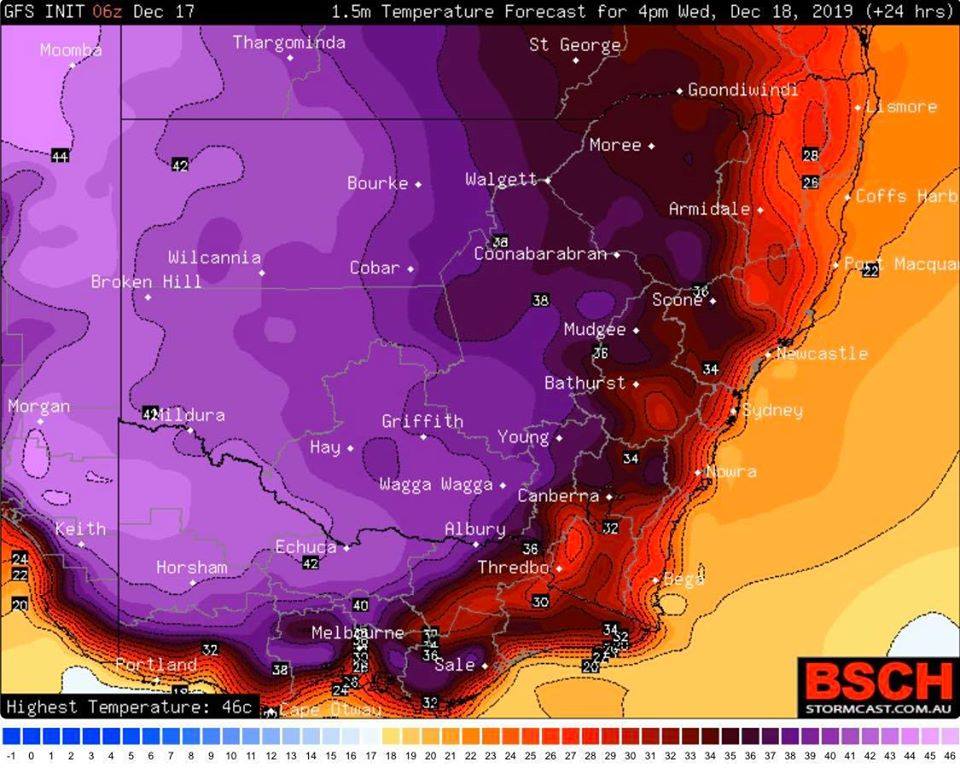Heatwave Conditions expected
Published Date: 18 Dec 2019
Summary
Firefighters are warning NSW residents to brace themselves for heatwave conditions that are forecast to fan the more than 100 bushfires raging across the state.
The NSW Rural Fire Service on Tuesday issued a statewide total fire ban for Wednesday to Saturday due to hot and dry conditions.

“There are difficult and dangerous fire conditions forecast over coming days,” the RFS tweeted.
Daytime temperatures in NSW and the ACT are expected to exceed 40C from Tuesday through to Saturday while in the western half of the state the mercury is set to top 45C.

Heatwaves not only affect your daily activities, but can be a serious risk to your health and wellbeing.
Heatwaves and hot weather kill more people in Australia than bushfires, cyclones and any other natural disaster, so it's important to adapt your activities and have a plan to keep cool.
Heatwaves can be dangerous for anyone, but they're especially dangerous for older people, young children and people with a medical condition. However, there are lots of things you can do to help yourself - and your family, friends, neighbours and pets - beat the heat and keep cool this summer.
Drink plenty of water
Even when you don't feel thirsty, drink plenty of water.
Avoid alcohol, tea, coffee and sugary or fizzy drinks. They make dehydration worse.
Eat small meals more often, rather than large meals. And eat more cold food like salads and fruit.
Stay cool
Stay indoors: keep out of the heat if you can.
If you need to go outside, wear light clothing and a hat, put on sunscreen and take water with you.
Do daily activities like shopping and gardening early in the day or ask someone to help you.
Draw blinds early in the day.
Check that your fan or air-conditioner works well. Have it serviced if necessary.
Turn your air-conditioner on before the room heats up
Take cool showers and splash yourself several times a day with cold water, or use a damp cloth.
Go to an air-conditioned building in your local area to cool off: a shopping mall, community centre, library or swimming pool.
Get connected
Check the forecast. This will help you prepare ahead for shopping and scheduling appointments.
Identify your support network. Include people who can help you get things you need during and after a heatwave. This could be family, friends, neighbours or a carer.
Write down your important numbers.
Keep in touch with friends, neighbours and relatives, particularly if they're unwell or isolated.
Get organised
Store medicines safely at the recommended temperature.
Talk to the doctor about how the heat might affect you.
Ensure your pets are also well hydrated and have plenty of shade when they are outside.
Look at the things you can do to make your home cooler such as installing awnings or shade cloths.
Stock up on food, water and medicines.
Get help
If you or someone you know shows signs of heat stroke (fits, confusion, staggering), call 000 immediately. Heat stroke is a life-threatening emergency and can cause a person to collapse or fall unconscious. Here are some tips on how to identify the signs and symptoms of heatstroke and heat exhaustion and what you should do.



